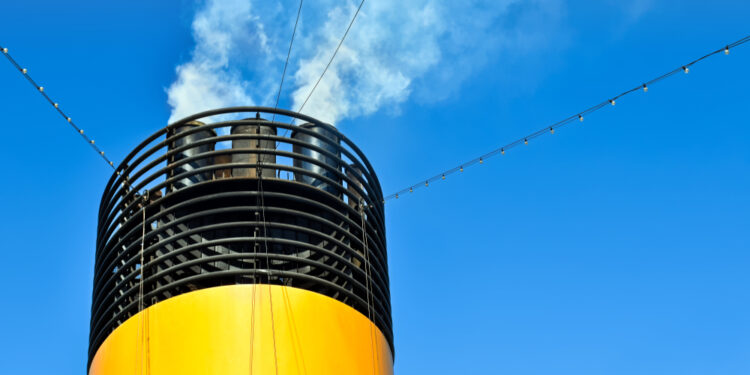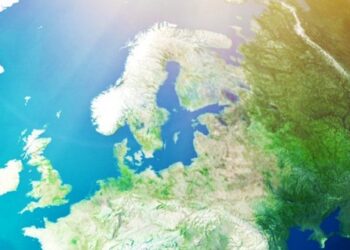New research from Chalmers University of Technology shows that the discharge water from scrubbers is responsible for up to 9% of certain emissions of carcinogenic and environmentally harmful substances in the Baltic Sea.
In the Chalmers study, published in the Marine Pollution Bulletin, the researchers found that more than 200 million cubic meters of environmentally hazardous scrubber water were discharged from ships that used exhaust gas cleaning systems in the Baltic Sea, in just one year.
The study showed that scrubber wash water accounts for up to 9% of the emissions of certain cancer-causing polycyclic aromatic hydrocarbons (PAHs) into the Baltic Sea.
It also revealed that ships painted with copper-based antifouling paints account for a third of the total supply of copper to the Baltic Sea. Copper in antifouling paints is already a known environmental problem as the metal cannot be degraded in the environment and therefore leads to high levels in water, sediment and soil.
For many years, we’ve flagged the fact that scrubbers account for disproportionately large emissions of hazardous and acidifying substances into the marine environment. In spite of this message, we have seen a significant increase in the number of scrubber installations as it is economically beneficial for the shipowner
said Ida-Maja Hassellöv, Professor and researcher at the Division of Maritime Studies at Chalmers University of Technology:
In addition, Erik Ytreberg, Associate Professor and researcher at the Division of Maritime Studies at Chalmers University of Technology, mentioned that the “results show that shipping accounts for a significant proportion of hazardous substances to the Baltic Sea, above all through antifouling paints and discharge of wash water from open loop scrubbers. PAHs are highly toxic to both humans and aquatic organisms as they are, among other things, carcinogenic. Worth noting is that the study’s data was collected in 2018, and at that time there were approximately 180 ships with scrubbers in the Baltic Sea. Since then, these ships have increased significantly and in 2021 there were almost 600 ships equipped with scrubbers in the Baltic Sea.”
Proposal for a future ban
The new research results have led the Swedish Transport Agency and the Swedish Agency for Marine and Water Management to propose a ban on the discharge of so-called scrubber water into the internal waters of the Baltic Sea.
If the Swedish politicians follow the line of the researchers and the authorities, Sweden will be the first country in the Nordic region to introduce the ban.
In the Baltic Sea area, only Germany already applies the same legislation, even though several other countries in Europe regulate scrubber discharges in their ports. The Chalmers researchers welcome the proposal but hope for even more extensive regulation in the future.
The proposal that Sweden should ban the discharge of wash water into Swedish inland waters is good, but at the same time it means that only 1 – 2 percent of the discharges that occur from scrubbers in the Baltic Sea today will be regulated. Sweden could also propose a ban in our territorial waters, which would mean that roughly 15-17 percent of emissions to the Baltic Sea could be regulated
concluded Mr. Ytreberg.




























































